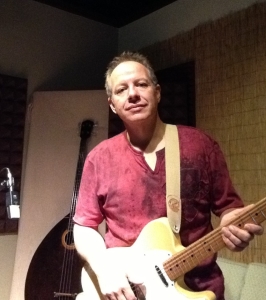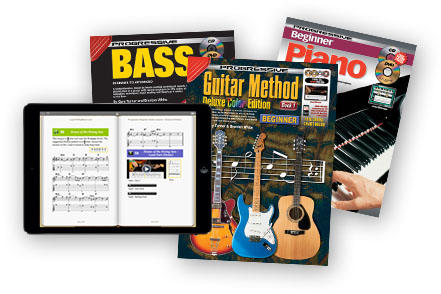Thanks to everyone who tuned in live to watch part 2 of our Music Space episode with Sam Tritico and the Nashville Number System! For those who missed out on the live show, you can watch it now and read about some of the key aspects of the video in this post.
A Brief History of Franklin & Nashville
For reasons best left to historians, in the 1980s a lot of musicians and producers started moving from California and New York to Tennessee, gravitating to Franklin. Next thing you know, people walking in the doors of a Franklin music store are no longer farmers and locals, but John Kay from Steppenwolf, Michael McDonald from the Doobie Brothers and guitarist Larry Carlton. All these people who came into the local music store bought equipment and started setting up home studios in Franklin, South Nashville. Before you knew it, Franklin and Nashville started booming together. Nashville now has a well known music infrastructure of studios and record companies.
National Songwriters Association International (NSAI)
The NSAI is a non-profit company founded by songwriters in Nashville, and now has chapters in most major cities and all over the world. Each city gets members through the website, where you can join online. Members can send in songs for professional songwriters and producers from record companies to critique, and if they’re really good it can lead to bigger opportunities. NSAI also offers workshops, which can help you with your music craft and business. This includes an annual workshop on the Nashville Number System (see last week’s discussion for our introduction and resources).
The Nashville Number System Cont’d
The Nashville Number System lets you look at a chart of numbers, then get up and play songs you’ve never heard before in any key like you’ve been practicing for days. Let’s take the major scale as an example for a quick rehash on last weeks episode. When you play the major scale through you can number the scale tones as you play.
1 = C / 2 = D / 3 = E / 4 = F / 5 = G / 6 = A / 7 = B / 8 = C
You can then start to recognize the intervals; e.g., 1-3, 1-4, 3-5 etc. This helps you to learn songs quicker. Instead of writing the chart in the key of C (for example the song ‘Something’, by the Beatles’ George Harrison) you would write a ‘1’ for the first chord, and then a ‘1maj7‘ for the 2nd etc. You end up with a lot of numbers, but this allows you to easily transpose. For example, if a singer wanted to sing it in Eb, they could start with a ‘1’ in Eb. That is the number one reason to use a number chart. See the blog for more info.
Songwriters and the Nashville Number System
Although they may not know it, the Nashville Number System can also be invaluable for lyric songwriters. Many songwriters don’t play an instrument or understand music notation, but do have musical ideas in their head for the tune of their lyrics. Most think they need to collaborate with other musicians to notate these ideas, but for a basic melody, they can use the Nashville Number System. All you need to do is assign numbers to the notes of a scale, i.e., 1-8 etc, and then as you sing each note of the the melody, write down the number associated with each note. Then when you jam with a musician, they can read the melody from your numbers and get straight into playing their own part. This can be used for both melodies and chords. As a songwriter, it can be frustrating to convey your ideas to musicians without having an understanding of how to play an instrument. But with music theory, including the Nashville Number System, it makes it easier to communicate.
Chord Spelling
Chord spelling is not really part of the number system, but is a useful trick. If you learn how the chord is spelled by the numbers, it can make it easier to identify a chord you’ve never played before. For example, if someone asks you to play an Ab13, start on the Ab note, and then count up 13 places through the major scale. Then add the 1st, the 3rd and the 7th; you now have an Ab13 chord.
About Sam Tritico
Sam Tritico is a former studio and touring musician from Nashville who now owns a music store and recording studio in Merritt Island, Florida. In addition to playing and producing music, songwriting has always been a second passion. Since 2008 Sam has produced and hosted a monthly writer’s night in Cocoa Beach, and is the regional coordinator of the local chapter of NSAI (Nashville Songwriters Association International).
USEFUL LINKS FROM THE SHOW
- Penny on the Track – album by Steve Hodak, produced by Sam Tritico (who also played guitar and bass)
- The National Songwriters Association International
- Island-Music.com (Sam’s store)
About Music Space
At LearnToPlayMusic.com, we know there’s more to learning music than can be found in a book – it’s also about people. That’s why we bring you Music Space – the weekly live videocast with international music guests performing live and discussing the hows and whys of their experiences in music and life.
Each episode spotlights a new music topic relevant to the show’s guest, covering anything from techniques, career advice, performing and songwriting tips, and essential music theory.
Viewers have the opportunity to interact with us during the live videocast by asking questions and posting comments. Episode are available on the Learn To Play Music Blog, which expands on each topic, invites further discussion, and features more great articles to help you learn to play the music you love.
Keep up to date with Music Space using Facebook, Google+ and Twitter, and interact with us and other viewers by using the #LTPMusicSpace hashtag.
– Continue learning with Learn To Play Music at LearnToPlayMusic.com































Leave A Comment
You must be logged in to post a comment.